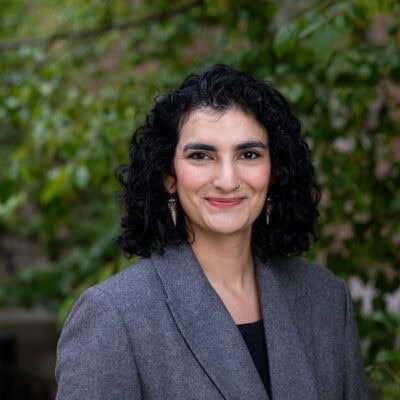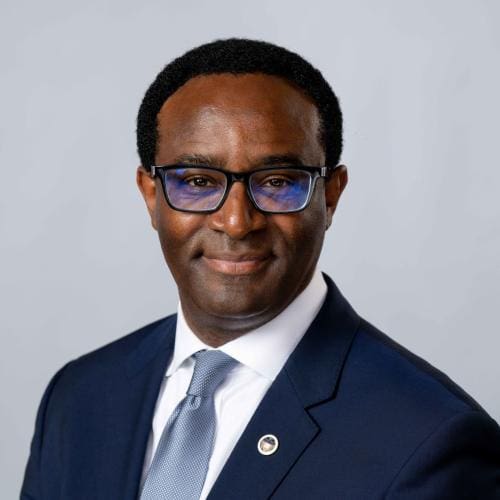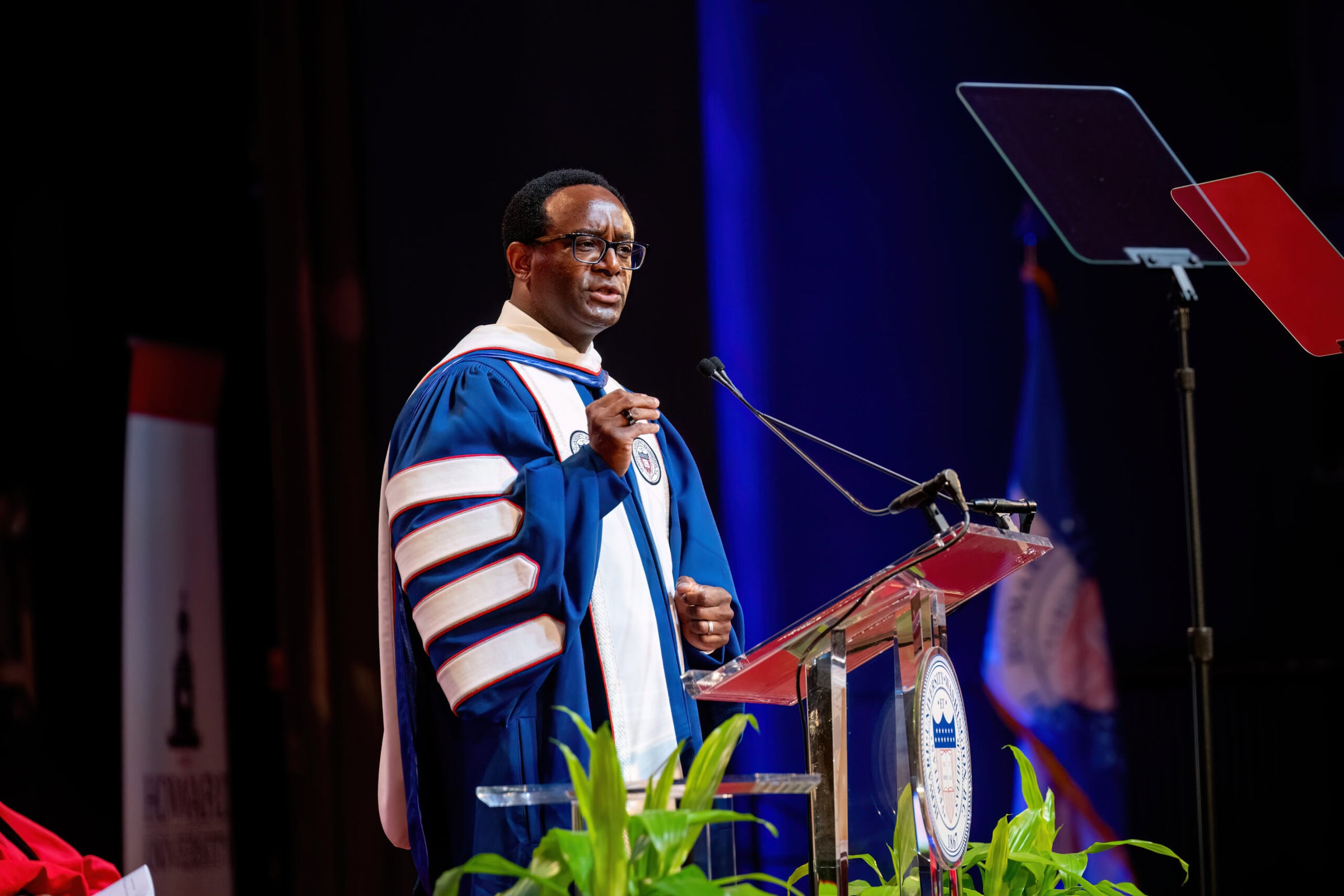One of my favorite aspects of our vocation is being able to discuss history with colleagues. Each unique subfield illuminates and informs the saga of the human odyssey. At the same time, our diverse experiences as professional historians condition our working environment, while sharpening our social impact and our craft itself. Over the months to come, I’ll be using this column to engage in dialogue with a few AHA members to help generate insights into the status of our discipline, while taking stock of where we might be headed.

Pragya Kaul, PhD candidate at the University of Michigan and at-large Council member, is writing a dissertation focused on Holocaust refugees who fled to British India.
For this month’s interview, I had the pleasure of speaking with Pragya Kaul, a member of the AHA Council and a PhD candidate at the University of Michigan. Kaul holds a bachelor’s degree in history and politics from the University of Edinburgh as well as a master’s degree in history from the University of Toronto. Her studies blend the Holocaust with refugee studies and the British Empire, with a dissertation focused on Holocaust refugees who fled primarily to British India during World War II and the Third Reich (1933–45).
Kaul and I discussed technology’s role in how we research and teach history today, some of history’s grand challenges moving forward, and what excites her about the current state of the field:
Technology has become such an important part of our lives and increasingly a part of the role of a historian. I would love to get your perspective, especially as a graduate student and an aspiring professor: What is the role of technology now in history? How do you use it, and how do you think about using it in the future?
At the University of Michigan, we have a course that every first-year cohort takes together. We read Arlette Farge’s The Allure of the Archives, which talks about the experience of the archive, what it is to go into it and sit among rows of desks with materials from which you’re often inhaling old, toxic fumes—but also the experience of combing through these centuries-old papers and what that’s like.
I was struck how different archival experiences are now from what Farge was writing about. If I’m going to the National Archives, for example, the predominant experience is watching everybody stand up or sit down with their phone taking pictures. (That’s not as common when I go to India, where they still use some older methods and transcribing is much more common.)
I don’t think we’ve reckoned with how that’s changing what it means to do historical research, and how different our experiences are now of the archive and of flipping through our materials and beginning our analysis. We might not get that depth straight on because we’re not sitting with our documents and trying to decide which one we are going to write out in its entirety and which one is important to read right in that moment. We’re taking it home, and then hopefully we will get to the thousands of images that we have. Especially for modernists, the volume of our material naturally increases—and hopefully the depth of our analysis doesn’t decrease—but I do wonder how our process has changed.
For modernists, the volume of our material naturally increases—and hopefully the depth of our analysis doesn’t decrease.
Of course, there’s a large conversation about artificial intelligence (AI), which is a subset of technology in general. It is so fast paced and fast changing that it’s hard to keep up with. No AI crash course is going to truly be helpful figuring out how we’re going to engage with it.
But what bothers me is AI summaries. In Google searches, the first thing we see now is an AI summary. There’s already something doing the summarizing for you. But that’s our work. That’s the work of reviewing the documents, analyzing them, and then summarizing with narrative.
Having worked with a lot of people for whom English is not their first language, using AI for grammar and editing seems like not as big a deal to me. Technology has been part of our editing process anyway. Microsoft Word has done its little squiggles for ages. But when it comes to writing a whole piece? That’s a whole other ball game. That is when we really need to have ground rules; we need to really have standards.
Yet still, I’m excited to see what comes out of it. Technology, we can’t run away from it. We need better systems of knowing what we’re dealing with and how we should address it.
Let me broaden out just a little bit. As an emerging scholar, what are you seeing right now as some of the grand challenges for the broader field of history? How are you seeing the field change? We’ve talked about one element of that with technology, but what else are you seeing as you review the literature, as you conduct research, and as you teach?
It’s hard to not separate grand challenges from our current moment. Part of it is because of my Council position—over the last two years, I’ve been exposed to the scale of administrative and government interference in teaching and in historical research, and to the broad category of the “culture wars” and how history is enmeshed in it—whether history likes it or not.
It’s something I never expected coming into the field. Having to think so much about what a certain government in a certain state would like to be taught versus not, and how that trickles down into the kind of knowledge that our students have or don’t have when they enter our classrooms. If you teach at an R1 university with students from all over the country, then your students don’t have the same base level of knowledge. We then have to do far more work to bring them up to a certain level, let alone start challenging and doing that history classroom experience of productive discomfort. The scales of discomfort can be vastly different based on what education system they’ve come from; that’s specific to the United States in many ways.
Given my field, it’s also really changed since October 7, 2023. Holocaust studies has been upended and divided ever since. The challenge is definitions, and who gets to define these critical definitions that we work with in our field. It’s just the times. History isn’t history, it’s not in the past. It’s very much alive—it’s alive in the narratives that people have been taught and brought up with and are now facing an enormous amount of dissonance and discomfort over. We are going to be reckoning with that for a long time to come.
One thing that I think about in that same vein is diversity, equity, and inclusion (DEI). The cohorts that have come after me—and that I am myself a part of—are a product of an embrace of and a push for DEI in our historical communities and in the discipline. I don’t think that I would have been in this profession this long if it had not been for those efforts, and there would be far fewer scholars like me who come from marginalized backgrounds and are working from marginalized positions in our fields doing the kind of work that we do.
But there has been a bit of a gap between bringing in a more diverse graduate student body and colleagues and addressing their needs. It’s not enough that our disciplines and our colleagues are a more diverse bunch. They have different needs. It’s not enough to have a diverse discipline. We now need to address the needs of that diversity to make sure that it stays diverse even under the different political pressures.
What really excites me is fascinating approaches to thinking in more in-depth ways about nonhuman subjects and interactors.
One final question: What stands out as some of the more interesting aspects of our field and subfields right now? When you step back, what excites you about history and us as historians?
This is an interesting question, because we stay so siloed within our own subfields that stepping back and discussing history as a whole is an interesting ask.
What really excites me is we’re getting more students and historians now who are taking fascinating approaches to thinking in more in-depth ways about nonhuman subjects and interactors. I think about Bathsheba Demuth’s Floating Coast, and how she made whales active agents in historical research. This has been done by Fernand Braudel, who made the Mediterranean Sea an agent on its own. But that kind of thinking—of what else can be an agent and how we talk about that—is something I don’t know how to do myself. So it’s fascinating to me, but it is also an incredibly rich way of thinking about everything that makes up a historical event and a historical narrative. How we should be paying attention to those things that we have left intangible, in many ways.
Whether that is the environment, whether that’s animals, whether that’s food. All those things that make up a culture, make up our lives—that’s really, really fascinating to me. I love reading it because it’s opening a world that I never understood before. I love that.
This interview has been edited for volume and clarity.
This work is licensed under a Creative Commons Attribution-NonCommercial-NoDerivatives 4.0 International License. Attribution must provide author name, article title, Perspectives on History, date of publication, and a link to this page. This license applies only to the article, not to text or images used here by permission.


